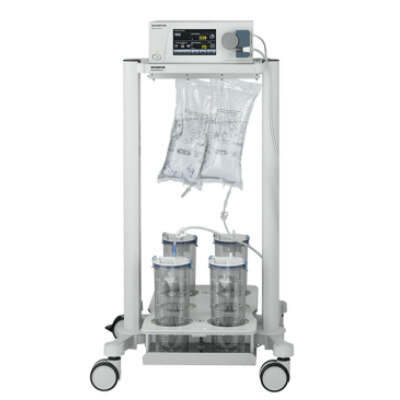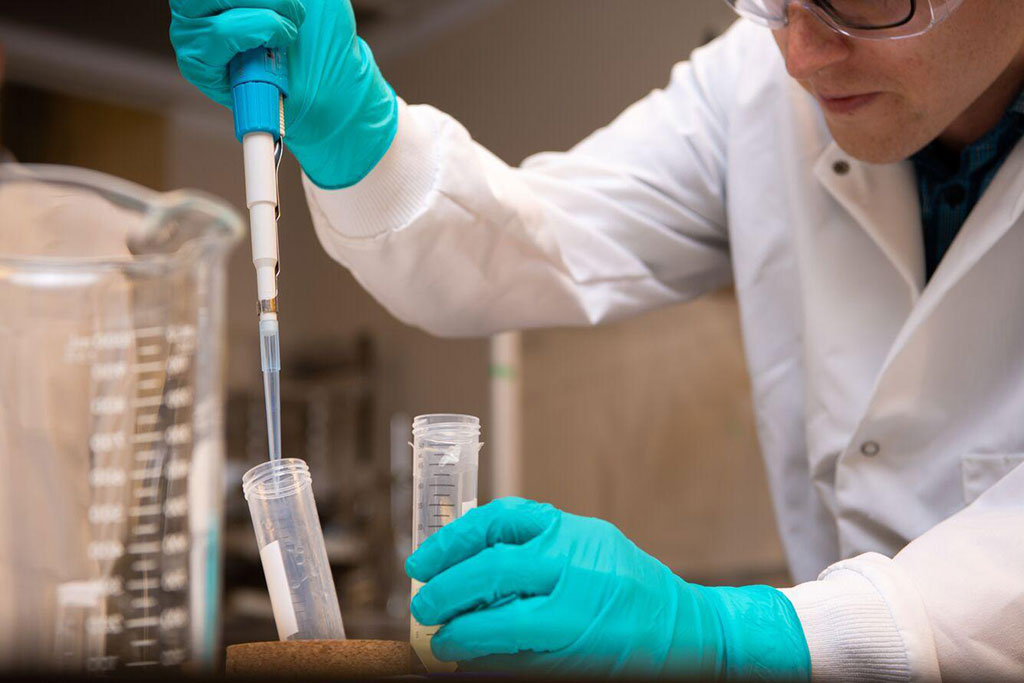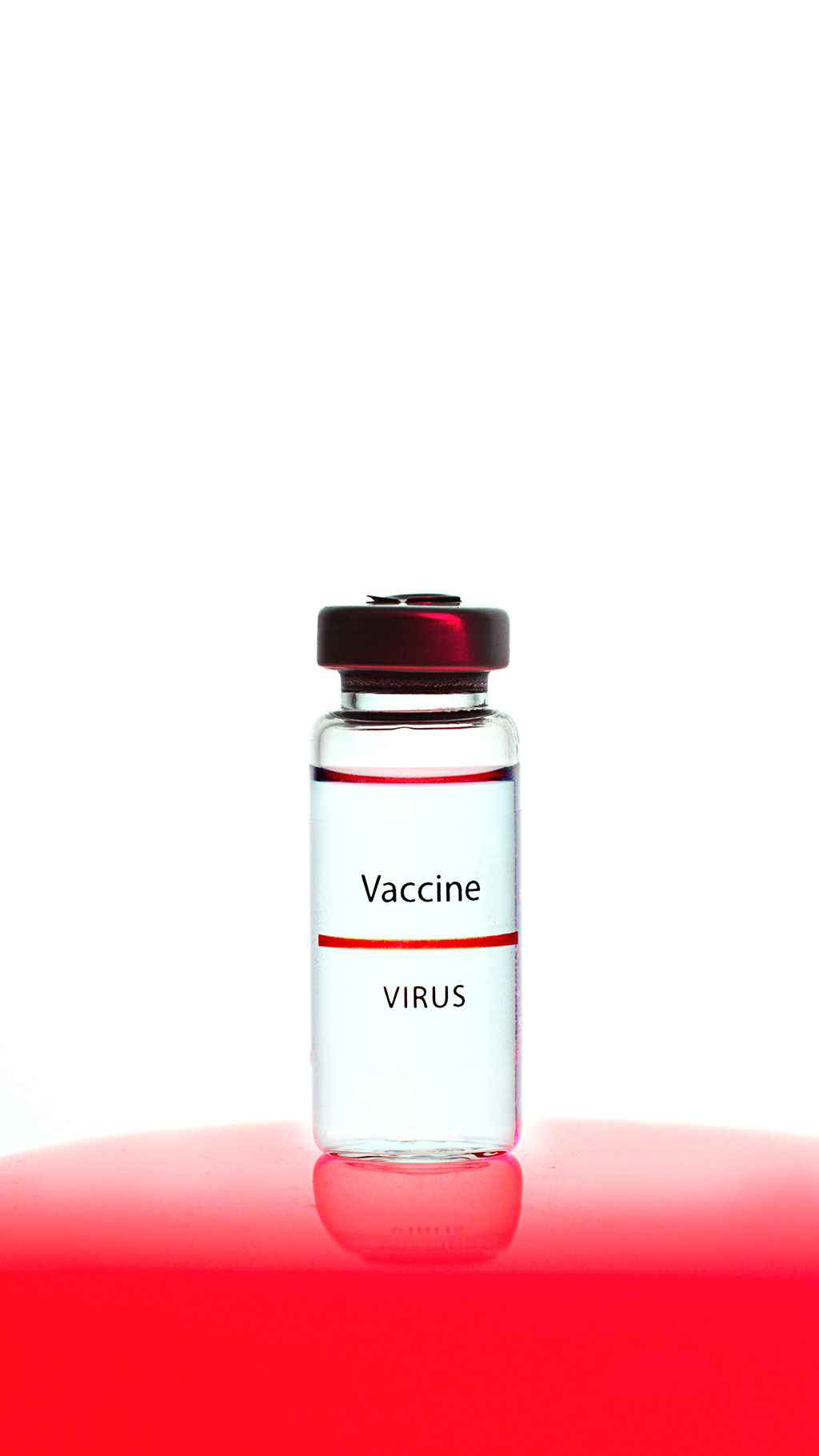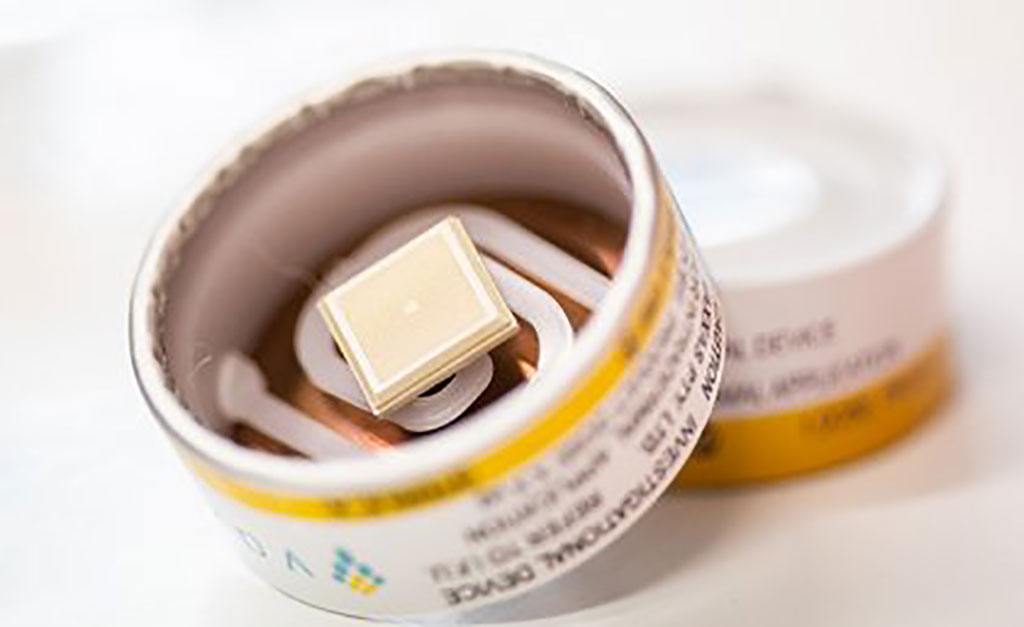Scientists Identify Human Genes That Can Protect Against COVID-19
By HospiMedica International staff writers
Posted on 26 Nov 2020
Changes in human genes can reduce SARS-CoV-2 infection, according to a new study by scientists at the New York Genome Center (New York, NY, USA), New York University (New York, NY, USA), and the Icahn School of Medicine at Mount Sinai (New York, NY, USA).Posted on 26 Nov 2020
To identify new potential therapeutic targets for SARS-CoV-2, the scientists performed a genome-scale, loss-of-function CRISPR screen to systematically knockout all genes in the human genome. The team examined which genetic modifications made human lung cells more resistant to SARS-CoV-2 infection. Their findings revealed individual genes and gene regulatory networks in the human genome that are required by SARS-CoV-2 and that confer resistance to viral infection when suppressed. The collaborative study described a wide array of genes that have not previously been considered as therapeutic targets for SARS-CoV-2.
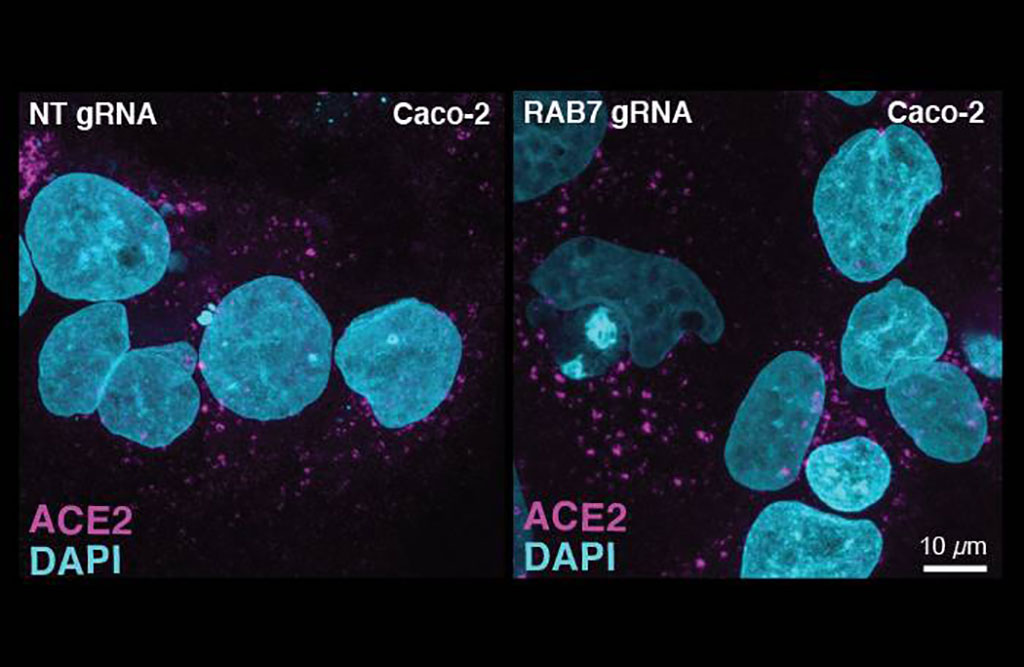
Image: Representative images of immunofluorescence staining of ACE2 on Caco-2 cells transduced with a NT or a RAB7A-targeting guide (Photo courtesy of New York Genome Center)
In order to better understand the complex relationships between host and virus genetic dependencies, the team used a broad range of analytical and experimental methods to validate their results. This integrative approach included genome editing, single-cell sequencing, confocal imaging, and computational analyses of gene expression and proteomic datasets. The researchers found that these new gene targets, when inhibited using small molecules (drugs), significantly reduced viral load, and with some drugs, up to 1,000-fold. Their findings offer insight into novel therapies that may be effective in treating COVID-19 and reveal the underlying molecular targets of those therapies.
“Current treatments for SARS-CoV-2 infection currently go after the virus itself, but this study offers a better understanding of how host genes influence viral entry and will enable new avenues for therapeutic discovery and hopefully accelerate recovery for susceptible populations,” said the study’s co-senior author, Dr. Neville Sanjana, Core Faculty Member at the New York Genome Center, Assistant Professor of Biology, New York University, and Assistant Professor of Neuroscience and Physiology at NYU Grossman School of Medicine.
Related Links:
New York Genome Center
New York University
Icahn School of Medicine at Mount Sinai










